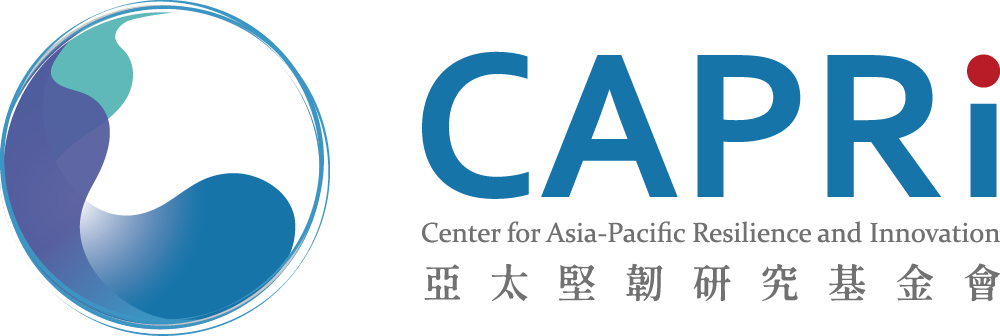Remarks delivered in The Democracy Forum, July 26, 2022
Good morning, good afternoon, and good evening. It’s a pleasure to be speaking on this distinguished panel of experts on Taiwan, which happens to be where I’m currently located. When I learned about today’s topic, I also saw that this panel already has excellent experts to address Taiwan’s geopolitical sensitivity and the importance of its semiconductor industry. Today, I would like to offer a different perspective: how Taiwan matters because of what it can contribute to the world in enhancing democratic governance and societal resilience. And how Taiwan needs support from the world as it faces domestic structural issues that are even more threatening than China.
Taiwan’s miraculous economic and political transformation into a wealthy, vibrant democracy over the last few decades tells quite the success story that can be shared with the world. But despite its successes, Taiwan and other high-income societies in the region face complex structural problems that will threaten their resilience to future crises, both predictable and unexpected. This is why during the pandemic, several international and Taiwanese colleagues and I set up a global, nonpartisan think tank called the Center for Asia-Pacific Resilience and Innovation, or CAPRI. Because Taiwan has been isolated from the international community for so long, CAPRI is actually the first international NGO to be established in Taiwan since 1979; it is designed to research these issues that many societies face. The most prominent of these structural problems I have observed in Taiwan are what I call the five Ps: population decline, power generation, political polarization, parochialism, and of course, the pandemic. These issues are at the forefront of people’s minds in Taiwan, perhaps even more so than the threat of armed conflict with China. Moreover, they are testing the resilience of societies around the world.
There is no quick fix for these issues; they need dedicated, sustained engagement with decision makers across sectors to develop policy solutions that will enhance resilience worldwide. Taiwan and the Asia Pacific must cultivate talented researchers and leaders who will be able to manage these complex and multidimensional challenges.
Of these challenges, one of the easiest to measure but hardest to address is population decline, which is happening in many high-income societies but is particularly severe in Taiwan. As Taiwan’s per capita income surpassed US$33,000, the population is shrinking, and its fertility rate was ranked last out of 227 countries and regions last year. As a result, Taiwan’s workforce is expected to shrink by half to only 8.6 million people by 2065, which will be insufficient to support the pensions and health care of the growing retiree population as life expectancy increase. Thus far, government policy has rarely if ever successfully increased birth rates, and the only alternative—expanding immigration—forces societies like Taiwan to consider whether they wish to become more ethnically and culturally diverse. Long-term solutions to population decline require a strategic rethinking of how our economies and societies are structured as people have fewer children and live longer than before.
Second, developing more sustainable power generation is an ongoing issue. Renewable energy comprises only about 5% of Taiwan’s energy mix, and the island is still relying mostly on coal, natural gas, and oil for its energy needs. The petrochemical and electronics industries responsible for Taiwan’s economic miracle remain the drivers of Taiwan’s economy and its main energy consumers, carbon emitters, and water users today. Moreover, the transition to renewable energy is a controversial political topic with disagreement among stakeholders on all sides over issues such as nuclear energy, electricity pricing, and conservation. High economic growth on the back of carbon-emitting industries means the progress toward a green economy will stagnate unless traditional economic models are transformed to prioritize sustainable industries.
Third, political polarization is occurring in Taiwan and in other democracies worldwide, both between and within political parties. We need not look further than Boris Johnson’s recent resignation to know that political factionalism both reflects and creates instability and dissatisfaction in political systems. The last few decades have seen Taiwan transform into a vibrant, progressive, participatory democracy; it was the first society in Asia to legalize same sex marriage, one of the first governments worldwide to appoint a transgender cabinet member, and has the highest percentage of women in parliament in East Asia. Voter turnout for the 2020 presidential election reached nearly 75 percent. However, political polarization could undermine democratic engagement. Tools intended to find consensus, such as referenda, could devolve into weapons to discredit policies associated with political opponents. In Taiwan and other democratic societies, factionalism is thwarting consensus building and meaningful dialogue on important issues. This is why evidence-based research transcending the election cycle is so crucial, especially in a region like the Asia Pacific where there are few independent, nonpartisan think tanks working on issues of policy governance.
Fourth, Taiwan’s continued parochialism is paradoxical given its high per capita wealth and centrality to the global economy; Taiwan has not become a highly internationalized society. The consolidation of a local Taiwanese identity distinct from that of China has emphasized local culture, which can appear at odds with efforts to internationalize. But as schools, companies, and government agencies continue to operate primarily in Chinese, Taiwan runs the risk of becoming connected with the outside world increasingly through China. Given Taiwan’s isolation from organizations that require statehood for membership, Taiwan needs creative ways to engage with the world outside the Sinosphere, such as through civil society and the nongovernmental sectors.
Last but not least, the fifth P is the pandemic, which has spotlighted how interconnected these challenges are and the need to reconceptualize a more resilient and innovative society to better handle the complexities of the future. Taiwan was a stellar example of resilience in 2020 as it recorded fewer than 10 COVID-19 deaths out of its nearly 24 million people. In a healthy environment, Taiwan’s semiconductor industry also grew to meet demand for computers and electronic devices as the world transitioned to working and learning from home. However, managing COVID-19 outbreaks has proven to be more difficult to in 2021 and 2022 as new variants emerge and the rest of the world opens up. Taiwan now struggles between opening its borders and protecting public health as the death rate increases. The longer Taiwan struggles with formulating a COVID policy that protects both people’s health and their economic livelihoods, the more likely it is to be left behind as the world reopens. This is why we need long-term research on building resilience into our political and economic systems. Furthermore, we need evidence-based assessments shared in a timely manner to respond to quick-moving, unforeseen crises like a pandemic.
While strategic competition in the Taiwan Strait is a crucial, existential issue for Taiwan’s future, the five Ps are ongoing challenges that would be important even if China did not threaten Taiwan. Democracies must collaborate to identify and share best practices that can build resilience across political systems, and Taiwan must be a part of it starting with public health. Through this collaboration, Taiwan can both offer its experience and learn from others on these common challenges. My hope is that Taiwan will be known and important to the world not because it is a hotspot, and not only because it makes the most advanced chips at the lowest possible cost, but that it is a center of pioneering ideas in how to deliver benefits to a wide spectrum of society. Taiwan is important to the world because it is an example of good democratic governance, more sustainable business, and improved quality of life that transcend the geopolitical challenges of our day. Thank you.




